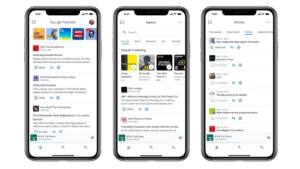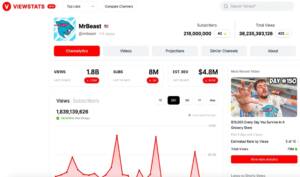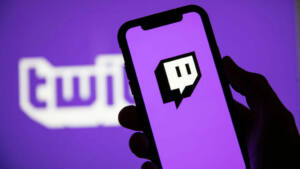Brand deals and sponsorships have become an increasingly popular way for companies to reach their target audience. From athletes to social media influencers, newsletters to podcasts, brands are constantly looking for new and innovative ways to promote their products and services. In this post, we’ll take a closer look at how brand deals and sponsorships work, and how creators can protect themselves while conducting these deals.
Athlete Sponsorships
Athlete sponsorships are a form of brand deal where companies pay athletes to use and promote their products. These sponsorships are particularly popular in sports where athletes have a large following, such as basketball, football, and soccer. The athlete may wear the company’s logo on their clothing or equipment, or they may create content promoting the product on their social media channels.
Action sports have long been a popular platform for brands to promote their products and services, and many athletes in these sports have secured lucrative sponsorship deals. Here are some examples of successful action sport sponsorships:
Red Bull and Freestyle Motocross: Red Bull has been a major sponsor of Freestyle Motocross for many years, hosting events such as the Red Bull X-Fighters and sponsoring top riders like Travis Pastrana and Josh Sheehan. The energy drink company has created a strong connection with the sport and its audience, providing exposure and financial support to the athletes.
Burton Snowboards and Professional Snowboarders: Burton Snowboards is one of the most well-known brands in snowboarding, and has sponsored some of the top riders in the sport such as Shaun White, Terje Haakonsen, and Mark McMorris. In addition to providing equipment, Burton has also collaborated with these riders on signature lines and events, further solidifying their relationship.
Nike and Skateboarding: Nike has made a significant investment in the skateboarding industry in recent years, sponsoring top skateboarders such as Paul Rodriguez and Eric Koston, and even creating its own skateboarding division. Through its sponsorship deals, Nike has been able to expand its reach into the skateboarding community and establish itself as a major player in the industry.
Monster Energy and BMX: Monster Energy has been a major sponsor of BMX events and athletes, sponsoring the annual Monster Energy BMX Triple Challenge and top riders such as Pat Casey and Kevin Peraza. The energy drink company has used its sponsorship deals to gain exposure in the BMX community and connect with fans of the sport.
When it comes to action sports sponsorships, it’s important for both brands and athletes to carefully consider their partnerships. Brands should choose athletes that align with their values and target audience, while athletes should only accept sponsorships from brands they believe in and trust. It’s also important for both parties to have clear expectations and communication throughout the sponsorship process, including details on compensation, deliverables, and timelines.
For athletes, sponsorships can be a lucrative source of income. However, it’s important for athletes to be selective about the brands they partner with. They should only work with brands that align with their values and image, and they should ensure that the terms of the sponsorship are fair and reasonable.
Newsletter Sponsorships
Newsletter sponsorships are a form of brand deal where companies pay newsletter creators to promote their products or services in their newsletter. Newsletters have become an increasingly popular way for companies to reach their target audience as they provide a direct line of communication with subscribers.
For newsletter creators, sponsorships can be a great way to monetize their content. However, they should ensure that the products or services they promote align with their brand and that they disclose any sponsored content to their subscribers. This can help to build trust with their audience and ensure that their readers are aware of any potential conflicts of interest.
The Morning Brew, a daily business newsletter, has over 4 million subscribers and is known for its witty, conversational tone. The newsletter includes a section called “Top News” where readers can catch up on the latest business news, and it also includes a section called “Latest from The Brew” where the newsletter promotes its own content, such as its podcast or paid subscription service.
The Hustle, a daily tech and business newsletter, has over 2 million subscribers and is known for its engaging content and quirky brand personality. The newsletter includes sections such as “The Hustle Standard” where it highlights a successful entrepreneur, and “Sh*t to Know” where it provides quick and informative snippets of news.
Both of these newsletters have successfully integrated sponsored content into their newsletters without disrupting the reader’s experience. For example, The Morning Brew has featured sponsored content from companies such as Mastercard, Citi, and Betterment, while The Hustle has worked with companies such as Microsoft, IBM, and Nike.
In terms of industries that have successfully utilized newsletter sponsorships, the tech and business sectors have been particularly successful. Companies in these industries are often looking to reach a specific audience of entrepreneurs, business professionals, and investors, and newsletters offer a targeted and engaged audience.
However, newsletters can be effective in a variety of industries. For example, food and lifestyle newsletters can be a great way for brands in the food and beverage industry to promote their products to a receptive audience. Newsletters focused on travel and leisure can be a valuable platform for hotels and resorts looking to promote their properties.
For creators looking to secure newsletter sponsorships, it’s important to create a newsletter with a clear and consistent brand identity. By building a loyal subscriber base and establishing a strong brand identity, creators can attract brands that align with their niche and audience.
Creators should also be transparent with their subscribers when featuring sponsored content. By clearly labeling sponsored content and ensuring it aligns with the brand’s values and message, creators can maintain their credibility with their subscribers.
In terms of pricing for newsletter sponsorships, creators can charge based on the number of subscribers or the reach of the newsletter. Some creators may also charge a flat rate per sponsored content feature. It’s important for creators to negotiate a fair price for their services, while also taking into consideration the value the brand will receive from the partnership.
Content Creator Sponsorships
Content creator sponsorships are a form of brand deal where companies pay social media influencers, YouTubers, or TikTok creators to promote their products. This type of sponsorship has become particularly popular in recent years as more and more people turn to social media for entertainment and information.
Charli D’Amelio, for example, is a TikTok creator who has become one of the most recognizable names in the industry. With over 133 million followers, Charli has worked with numerous brands, including Dunkin’ Donuts, Hollister, and Morphe. According to reports, Charli can earn up to $100,000 per sponsored post. Similarly, MrBeast, a popular YouTuber, has worked with brands like Honey, Dollar Shave Club, and Audible, among others. According to reports, MrBeast’s net worth is estimated to be around $50 million, largely due to his successful brand deals and sponsorships.
So how do content creators and influencers like Charli and MrBeast secure brand deals and sponsorships? Here are some tips:
Build a Strong Following To attract brand deals and sponsorships, creators need to have a strong following on their respective platforms. This means consistently posting high-quality content and engaging with their audience. Creators should also focus on building a niche audience in a specific industry, which can make them more attractive to brands looking to target a specific demographic.
Develop a Personal Brand A personal brand is an important aspect of a creator’s success. Creators should have a unique brand that sets them apart from others in their industry. This can include their personality, the type of content they create, and their overall aesthetic. By having a strong personal brand, creators can attract brands that align with their values and interests.
Reach Out to Brands Creators can reach out to brands they are interested in working with by sending them a pitch email or DM. In the pitch, creators should highlight their personal brand, their audience demographics, and any relevant metrics (such as engagement rate or view count). Creators can also provide examples of past brand deals they have worked on to showcase their experience.
Utilize Sponsorship Marketplaces Sponsorship marketplaces, like Sponsora, can connect creators with brands looking for sponsorships. Creators can sign up for the platform, create a profile, and browse through available sponsorships that match their personal brand and audience. Sponsorship marketplaces can streamline the process of finding and securing brand deals, and can provide creators with additional resources to help them succeed.
For content creators, sponsorships can be a great way to monetize their content and grow their following. However, it’s important for them to be transparent with their audience about any sponsored content they create. They should also ensure that the products they promote align with their brand and that the terms of the sponsorship are fair and reasonable.
Podcast Sponsorships
Podcast sponsorships are a form of brand deal where companies pay podcast creators to promote their products or services in their podcast. Podcasts have become an increasingly popular way for companies to reach their target audience as they provide a captive audience that is engaged with the content.
My First Million: My First Million is a podcast hosted by Shaan Puri and Sam Parr, where they talk about business ideas, trends and opportunities. The podcast has seen success with sponsorships from companies like Wealthfront, a robo-advisor investment platform, and Onnit, a health and fitness brand. These sponsorships make sense given the podcast’s audience of entrepreneurs and business-minded individuals. My First Million is now owned by HubSpot.
H3H3: H3H3 is a podcast hosted by Ethan and Hila Klein, where they discuss internet culture, news, and trends. The podcast has landed sponsorships with companies like Dollar Shave Club and NordVPN. These sponsorships align with the podcast’s focus on internet and technology, and offer value to the audience with discount codes and special offers.
The Tim Ferriss Show: The Tim Ferriss Show is a popular podcast hosted by bestselling author Tim Ferriss, where he interviews successful individuals from various industries and backgrounds. The podcast has seen sponsorships from companies like Four Sigmatic, a mushroom-based coffee and wellness brand, and Audible, an audiobook subscription service. These sponsorships align with the podcast’s focus on health, wellness, and personal development.
For podcast creators, sponsorships can be a great way to monetize their content and grow their following. However, they should ensure that the products or services they promote align with their brand and that they disclose any sponsored content to their listeners. This can help to build trust with their audience and ensure that their listeners are aware of any potential conflicts of interest.
Event Sponsorships
Event sponsorships are a form of brand deal where companies sponsor events in exchange for brand visibility. This type of sponsorship is particularly popular in industries such as sports, music, and fashion.
For event organizers, sponsorships can be a great way to fund their event and provide attendees with a better experience. However, it’s important for them to ensure that the brands they partner with align with the values and image of their event. They should also ensure that any sponsored content is clearly disclosed to attendees.
Protecting Yourself During Brand Deals and Sponsorships
When conducting brand deals and sponsorships, it’s important to protect yourself and ensure that the terms of the deal are fair and reasonable. Here are a few tips to keep in mind:
Get Everything in Writing
Never agree to a brand deal without getting everything in writing. This includes the scope of the project, the compensation, and the timeline. Having a written agreement ensures that both parties are on the same page and can avoid any misunderstandings.
Be Clear About Your Expectations
Make sure that the brand understands your expectations and what you’re willing to do. If you have specific requirements, such as creative control or a specific way to feature their product, make sure you communicate that upfront.
Disclose Your Relationship
It’s important to disclose your relationship with the brand to your audience. Whether you’re posting on social media or in a video, make sure you clearly state that it’s a sponsored post. Not disclosing this relationship can harm your credibility and reputation.
Protect Your Intellectual Property
If you’re creating content for the brand, make sure that you retain the rights to your work. This ensures that the brand can’t use your content without your permission, and you can use it for your own purposes later on. On Sponsora, Brands are granted access to repost your content, but you may be able to negotiate different terms on a case-by-case basis with a brand.
Brand deals and sponsorships can be a great way for creators, athletes, newsletters, podcasts, and event organizers to monetize their work and reach a broader audience. However, it’s crucial to approach these opportunities with caution and protect yourself during the negotiation process. By following the tips mentioned above, you can ensure that your brand deals and sponsorships are both successful and safe.




